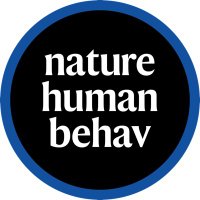
Chris Kelly
@chris_a_kelly
Postdoc Fellow @StanfordHAI | Previously Cognitive Neuroscience PhD @affectivebrain @UCL @MPC_CompPsych @MIT | Irish ☘️
ID: 789578483282350080
21-10-2016 21:25:55
211 Tweet
858 Followers
1,1K Following






🚨 New paper alert! 🚨 “Considering information-sharing motives to reduce misinformation” out now in Current Opinion in Psychology with affective.brain. doi.org/10.1016/j.cops… (1/n)



.Chris Kelly and affective.brain reveal that web-browsing both reflects and affects mental health. Highlighting webpage emotional impacts helped reduce negative browsing and improve mood. nature.com/articles/s4156…

Check out this fantastic commentary on our article (rdcu.be/d0ZHS) by Anne-Linda Camerini, published today in Nature Human Behaviour 🔗 nature.com/articles/s4156…

📢 New publication with affective.brain in Nature Human Behaviour Key finding: Human-AI interactions create feedback loops, where AI amplifies human biases, which are then further internalized by humans across perceptual, emotional & social domains. nature.com/articles/s4156… 🧵1/6

